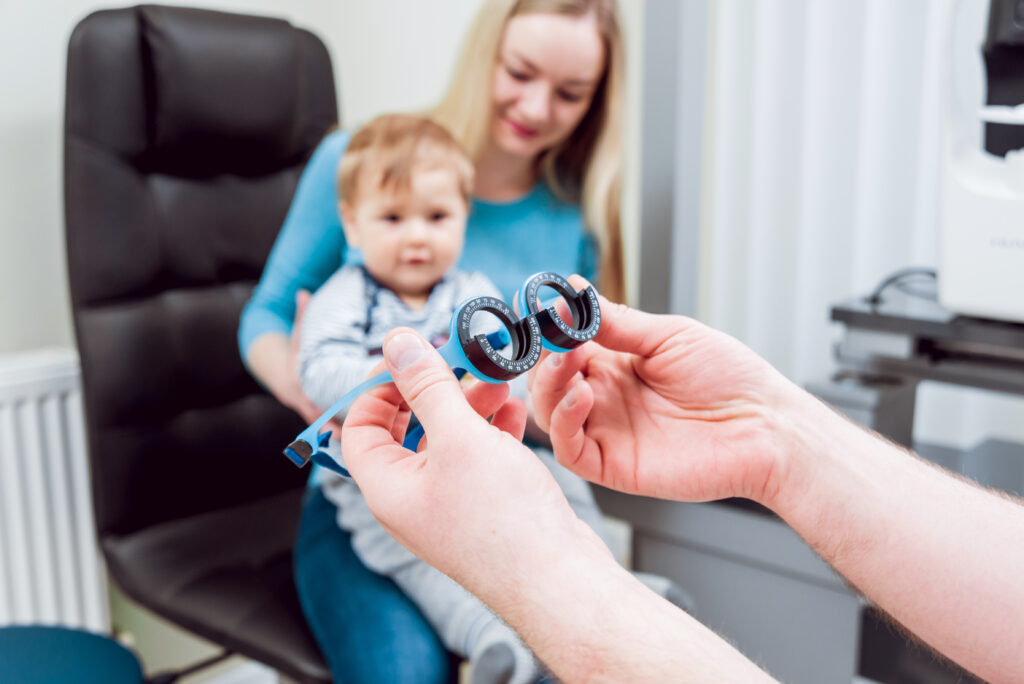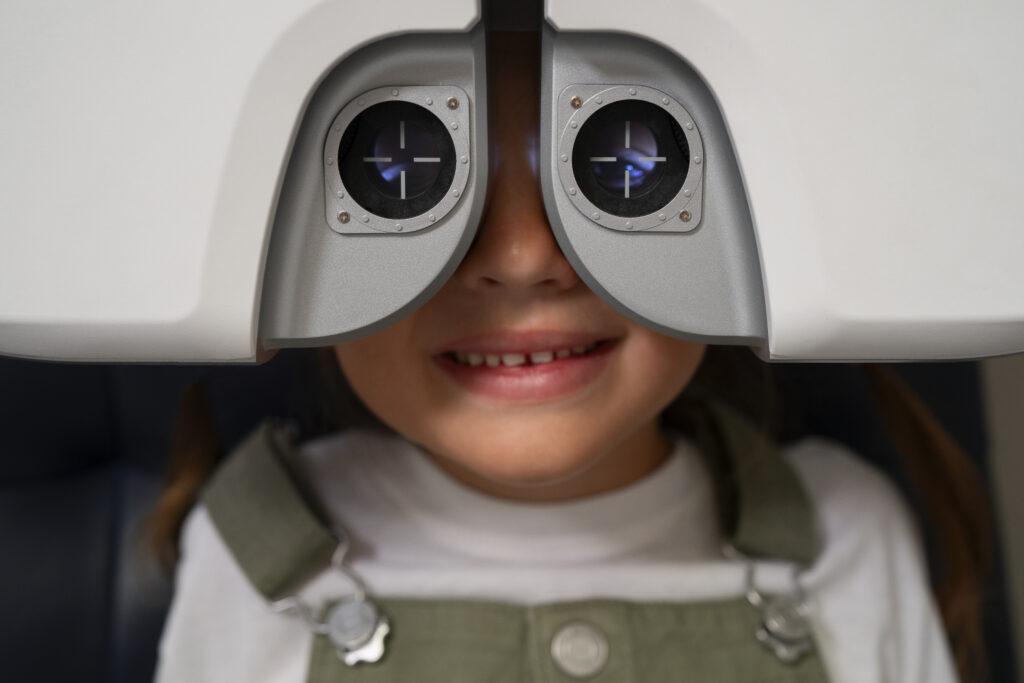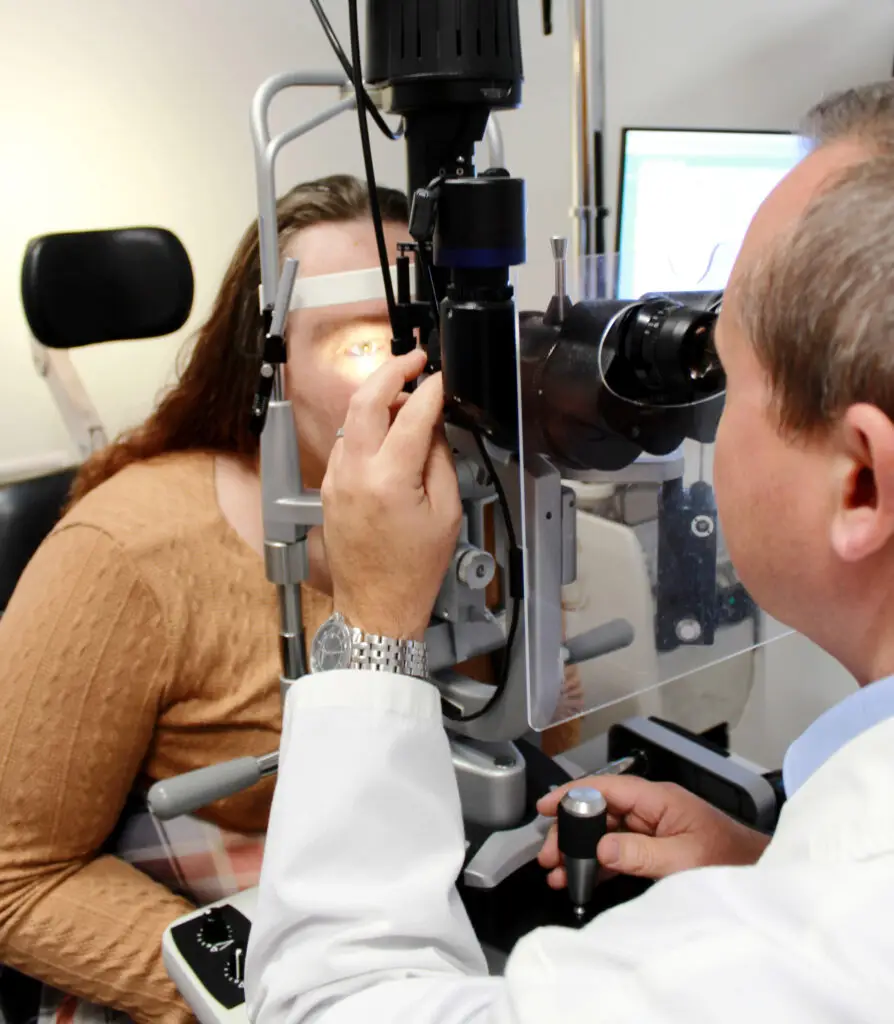A yearly checkup for your eyes is just as important as your physical or dental exam. At every stage of life, an eye doctor can find early signs of disease, preserve vision, and help you stay comfortable and clear-sighted.

Infants and Babies: Laying the Foundation for Vision
In infancy, eye exams focus on detecting amblyogenic issues that may prevent proper visual development or other conditions that threaten healthy growth.
Early detection and coordination with pediatricians or pediatric eye specialists are critical to ensure vision develops properly and remains healthy for years to come.

Children: Clear, Aligned, and Healthy
When children can see, move, and learn comfortably, they thrive. Pediatric eye exams ensure:
Clear focus by diagnosing myopia, hyperopia, or astigmatism
Proper alignment of the eyes
Healthy visual development through early screening
If vision is blurry, eyeglasses or contact lenses can help. If eyes are misaligned, prisms, vision therapy, or sometimes surgery may be considered. When conditions are identified early, medical or surgical care can protect and improve both vision and long-term eye health.

Adults: Comfort, Clarity, and Early Detection
For adults, an eye exam may seem routine, but it plays a major role in maintaining comfort and detecting disease early. We assess:
Visual clarity and comfort
Tear film and ocular surface health
Anterior segment imaging
Specialized diagnostics for risk factors or symptoms
Ocular surface conditions such as dry eye or eyelid inflammation often benefit from targeted treatments like tear testing, punctal plugs, thermal gland expression, eyelid cleaning, amniotic membranes, radio frequency, or intense pulsed light therapy.
Most adults will need eyeglasses, and many choose contact lenses for sharper vision. Regular exams also help detect glaucoma, diabetic eye disease, and other retinal conditions before vision loss occurs.

Older Adults: Preservation and Prevention
As we age, eye exams become even more essential. Geriatric exams include all the same components as adult exams, with added focus on:
Monitoring cataracts, macular degeneration, glaucoma, and other age-related diseases
Providing advanced medical or surgical treatments when needed
Maintaining vision and comfort through proactive care
Age does not have to mean poor vision. With regular exams and early treatment, your eye doctor can help you preserve sight and maintain your quality of life.
Do not wait for symptoms. Annual eye exams are your best way to preserve vision, detect hidden problems, and keep your eyes healthy at every stage of life! Book your appointment today.
